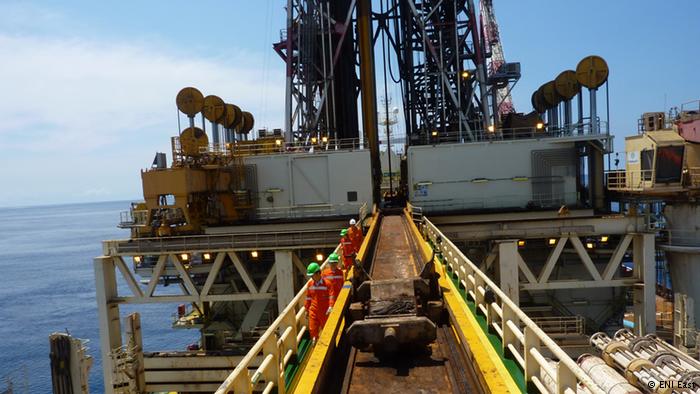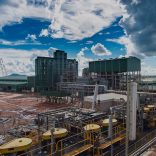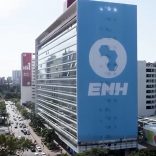Mozambique: Syrah Resources targets Balama graphite production restart
Clouds surround Mozambique gas pipeline business

DW / The new gas platform in the Rovuma basin, in Cabo Delgado province, northern Mozambique
The Mozambique Centre for Public Integrity (CIP) is examining a new consortium that plans to build a gas pipeline from Palma in Cabo Delgado province in northern Mozambique to Gauteng, South Africa, at a cost of US$6 billion.
The consortium is composed of South African company oil and gas SASOL, the China National Petroleum Corporation’s Petroleum Pipeline Bureau and Mozambican partners state-owned National Hydrocarbon Company and Profin Consulting SA, a private company established in 2015.
The CIP has doubts about the transparency of the project and is expressing apprehension over a “promiscuity between state and private business” characteristic, it says, of previous president Armando Guebuza’s administration.
“The logic in the large infrastructure department of the Mozambican economy has always been that of involving ‘local content’, but that is not genuine, because they are always figures of the political elite connected to the ruling party” the centre’s Borges Nhamire says. The CIP had expected this logic to change under the presidency of Filipe Nyusi.
General Chipande involved
Among Profin Consulting’s shareholders are former defence minister Alberto Chipande and his wife Hortência Chipande. Known as the “Northern General”, Chipande is an influential member of Frelimo with varied interests in Cabo Delgado.
Another CIP criticism is that there is not much information about the project. “This process has to be as transparent as possible. And it does not to appear to be, the way things are going,” Nhamire says.
CIP expects that a public tender process will be held, “to determine the best company to develop the pipeline, and so that it is not just awarded directly to this consortium”.
The monitoring organization also notes that there is already another project, Gasnosu, that also plans to build a gas pipeline from Palma to Maputo and from there to South Africa using the existing gas distribution network of South African company Gigajoule, which is part of the Gasnosu initiative, along with the National Hydrocarbon Company.
Public consultations
Nhamire recommends that public consultations are made on the project, which demands a “thorough debate” before any decision is taken.
“We stress that the government has not yet taken any decision announced on the construction of this pipeline,” says the analyst, who is exhorting the government to carry out “a public debate which all stakeholders can participate in”.
Mozambique has some of the largest natural gas reserves in the world, with hopes of development in Cabo Delgado creating great expectations among the region’s population.
CIP recognizes that the construction of the pipeline would “bring in foreign exchange and help the balance of payments”, but argues that there are other options.
“What was expected was that gas would develop domestic industry,” Nhamire says. “It is important that the gas stays in Mozambique and is used for the production of fertilizers for agriculture,” he says, noting that Mozambique is a predominantly agricultural country, with many fertile areas unexploited.












Leave a Reply
Be the First to Comment!
You must be logged in to post a comment.
You must be logged in to post a comment.